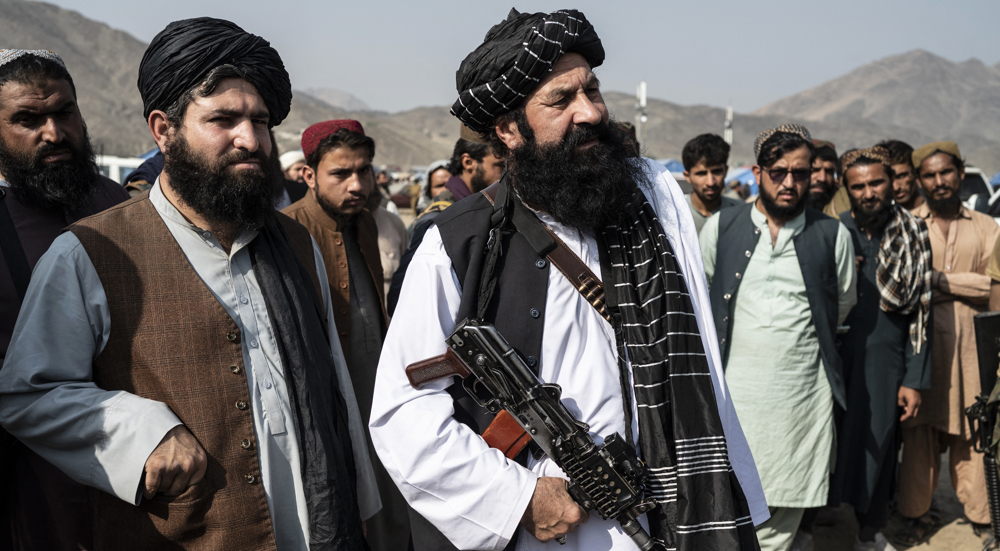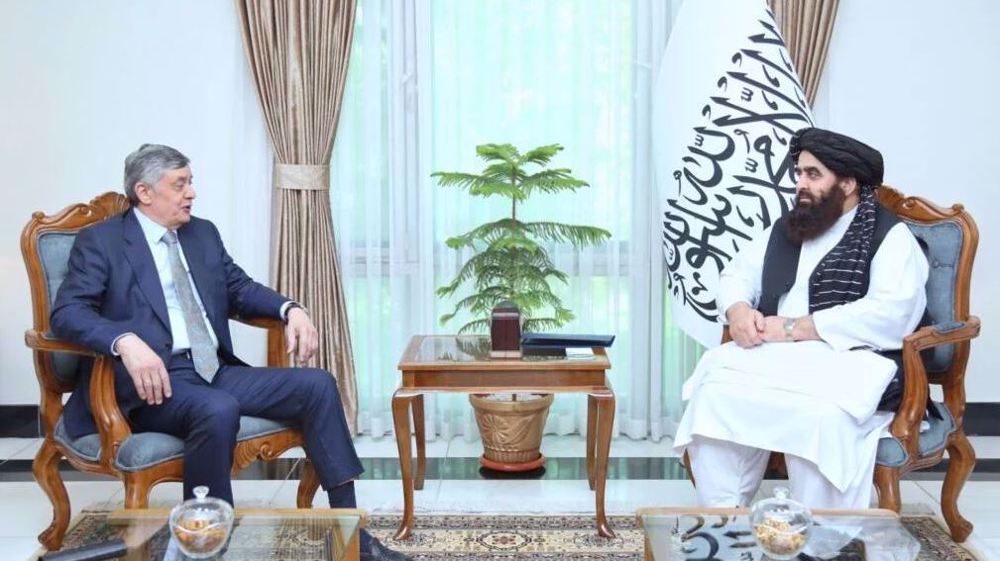Taliban return to Doha to begin intra-Afghan talks
A senior Taliban delegation has returned to the Qatari capital of Doha, paving the way for the beginning of peace talks between the Afghan government and the militant group.
The Taliban delegation’s arrival in Qatar, where the group keeps its political office, came as a top Afghan government body blamed the militants for delays in starting bilateral negotiations.
In a Saturday tweet, the spokesman for Kabul’s High Council for National Reconciliation, Faraidoon Khwazoon, said the government was ready to start direct talks, and there is no more excuse for any delay.
“The process of releasing the prisoners is over and there is no excuse for delaying the talks, but the Taliban are still not ready to take part in the talks,” Khwazoon said.
Afghanistan’s Loya Jirga, or grand assembly of elders, had earlier approved the release of 400 imprisoned Taliban militants who had been involved in serious crimes in Afghanistan and whom the Afghan government was hesitant to release.
The prisoner swap, part of a deal between the Taliban and the United States, was considered a prelude to peace talks between the militants and Kabul.
The US State Department said in a statement Saturday that its envoy Zalmay Khalilzad who brokered the February peace deal left for Qatar on the previous day to press for an “immediate” start to negotiations between the warring Afghan sides.
Under the deal with the US, the militant group agreed to stop its attacks on international forces in return for the US military’s phased withdrawal from Afghanistan and the prisoner swap with the government.
Taliban spokesman Zabihullah Mujahed, in a surprise late night Saturday tweet, announced a shakeup in the militant group’s negotiation team.
The Taliban’s Chief Justice Abdul Hakim, who is close to the Taliban leader Hibatullah Akhunzada, has been named the lead negotiator replacing Sher Mohammad Abbas Stanikzai, who will be deputy negotiator.
Hakim’s sudden appointment, for which no explanation has been given, brings the Taliban’s negotiating team to 21.
Until its February deal with the US, the Taliban refused to directly negotiate with the Afghan government. The current Kabul negotiating team is a collection of government and opposition officials.
Relentless delays over the exchange of prisoners —5,000 held by the Afghan government and 1,000 by the Taliban — have hindered efforts to get intra-Afghan talks started.
In late August, a delegation led by the Taliban’s political office head and the chief negotiator of the February deal with the United States, Mullah Abdul Ghani Baradar came to Pakistan. While little was revealed about the details of his meetings with Pakistani officials, it is believed he was pressed to get started with intra-Afghan talks.
Tel Aviv tells Damascus Israeli forces will remain in occupied territory: Report
Dec. 22: ‘Axis of Resistance’ operations against Israeli occupation
‘Abhorrent’: Oxfam says only 12 trucks delivered aid in North Gaza since Oct.
VIDEO | Leader receives religious eulogists on Hazrat Fatima birth anniv.
Pope Francis slams Israel’s ‘machine-gunning’ of Gaza children
US hostage-taking of Iranian nationals violation of intl. law: Deputy FM
VIDEO | Carol Singers for Palestine on London’s Parliament Square
Ansarullah says ‘Israeli terrorists’ incapable of confronting Yemen, warns of secret weapons











 This makes it easy to access the Press TV website
This makes it easy to access the Press TV website